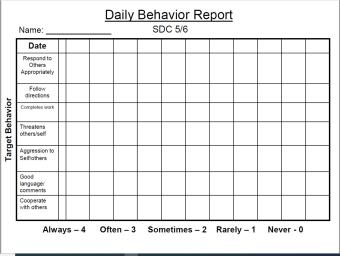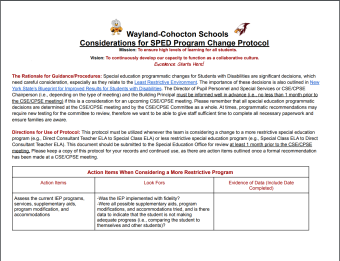Daily Behavior Report
The primary function of the daily behavior report is to monitor how a student is doing based on their target behaviors as well as desired behaviors. The form also gives a quick reference to behavior without having a formal FBA for a BIP that is in the process. It is easy to fill out and easy to modify to the user’s needs.
Submitted by:





